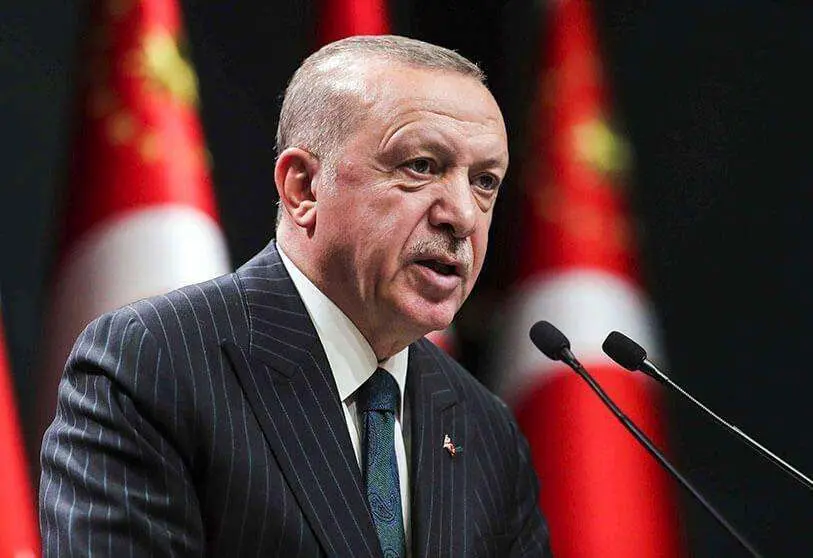Opportunistic intermediaries

The script of the Ukraine crisis is being fulfilled according to the interests of both sides, which aim to win a media and public battle, with a story that is in line with their interests and objectives, but always keeping open the channel of communication and direct negotiation between the heads of Russian and American diplomacy or indirectly with the participation of other European political leaders such as the president of France, Emmanuel Macron, and the new German chancellor, Olaf Scholz.
In addition, a more or less unforeseen intermediary, Turkey's President Recep Tayyip Erdogan, has slipped in, displaying an opportunism that is foolproof. In these cases, where the river is troubled, the fishermen's gain, nothing can be ruled out, as long as Erdogan's ambition to look good to both sides puts him at odds with everyone in the end.
His situation is curious: internally, the Turks are suffering a very acute economic crisis with an erratic policy that has sunk the lira and employment, with poor prospects of renewing his mandate in next year's elections, but with an aggressive and contradictory foreign policy: He is as quick to be on good terms with Russian President Vladimir Putin and buy S-400 anti-aircraft missiles from him, creating enormous unease within NATO, as he is to take a stand in Kiev and say that Ukraine has the full right to its freedom to decide its future, confronting Putin, but using his relationship with Moscow to play the role of intermediary.
We will see how the crisis develops, with such actions being used according to the needs of each party, which modulates its declarations depending on whether it is in its interest to tense or de-escalate the atmosphere. Meanwhile, Washington is asserting its former role as the guardian of world order and is taking advantage of the occasion to deal a mortal blow to the Daesh terrorist group in Syria. Joe Biden explained that the terrorist leader, successor to Al-Baghdadi, committed suicide before being arrested by the special command of the Seals.
Terrorists play with the lives of others, including those of their families, their children, and then use it as propaganda. And in the face of this violence, this tension, the International Day of Human Fraternity was celebrated for world peace and coexistence according to the document signed by Pope Francis and the Grand Imam of Al-Azhar in Cairo. In Madrid, the FICRT (Foundation for Islamic Culture and Religious Tolerance) organised an interesting debate on human fraternity and the diplomacy of religions, with the participation of prestigious representatives of the three religions. An example that diplomacy and the peaceful resolution of conflicts is quite possible.

